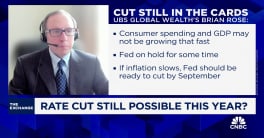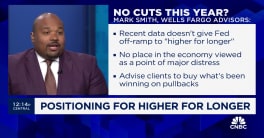The National Association of Realtors (NAR) on Tuesday released preliminary figures on sales contracts that were pending at the end of August and the information, once again, gave lie to any thought that the housing market is close to hitting bottom.
The Pending Home Sales Index (PHSI) applies only to existing
homes and is a "forward looking indicator." Figures for August fell 6.5 percent
to 85.5 from an upwardly revised 91.4 in July. This was 21.5 percent below the
index of 108.9 in August of last year. According to NAR, the PHSI is based on
a large national sample, typically representing about 20 percent of transactions
for existing-home sales. In developing the model for the index, it was demonstrated
that the level of monthly sales-contract activity from 2001 through 2004 parallels
the level of closed existing-home sales in the following two months. There is
a closer relationship between annual index changes (from the same month a year
earlier) and year-ago changes in sales performance than with month-to-month
comparisons.
An index of 100 is equal to the average level of contract activity during 2001,
which was the first year to be examined as well as the first of five consecutive
record years for existing-home sales. A sale is considered to be pending when
the contract has been signed but the transaction has not closed. While the Index
is relatively new, this is the lowest level it has reached since its base year.
According to Reuters, the previous low for the index was 89.8 in September 2001,
in wake of the attacks on New York and Washington.
The PHSI in the West was down 2.7 percent in August to 80.3 and was 27.1 percent below a year ago. In the Midwest, the index fell 2.9 percent from July to 78.1 and is 18.0 percent lower than August 2006. The index in the Northeast fell 8.3 percent in August to 77.3 and was 18.3 percent below a year ago. In the South, the index dropped 9.5 percent in August to 97.8 and was 21.3 percent below August 2006.
Lawrence Yun, NAR senior economist, said that a large part of the index decline was due to instability in the mortgage markets. "Fewer contracts were being written because of mortgage availability issues," he said, "and a separate internal survey of our members shows more than 10 percent of sales contracts fell through at the last moment in August, primarily the result of canceled loan commitments. The volume of activity we're seeing today is below sustainable market fundamentals because some creditworthy people are trying to buy homes but can't because of the credit crunch.
"The impact was greater in high-cost markets that are more dependent on jumbo mortgages. In some areas, as much as 30 percent of signed contracts were falling through in August when the credit crunch problem peaked," Yun said. "The problem has since become less severe, though jumbo loan rates are still higher than they would be under normal conditions. Therefore, sales activity in late fall will better reflect market fundamentals."
CNN reported on Monday that Americans may take a second hit to the pocketbook as housing sales and prices decline and foreclosures increase. The special report said that cities and states were beginning to feel the pinch from declining home and retail sales and thus falling sales tax revenue as consumers curtail spending - either because they are feeling cash poor or because they are no longer able to use increasing home equity to fund purchases. Home renovation and decorating sales are being hit especially hard and states where some form of sales tax is charged on property transfers the impact is even worse. Property tax revenue could also decline as home prices and thus assessments fall.
CNN speculated that there would be a loss of services in some locations and/or an increase in user fees for services. It is possible that property tax rates will increase as assessments fall, a circumstance that could have a disproportionate impact on homeowners who cannot show a recent demonstrable drop in market value.
**VIDEO(690)**






